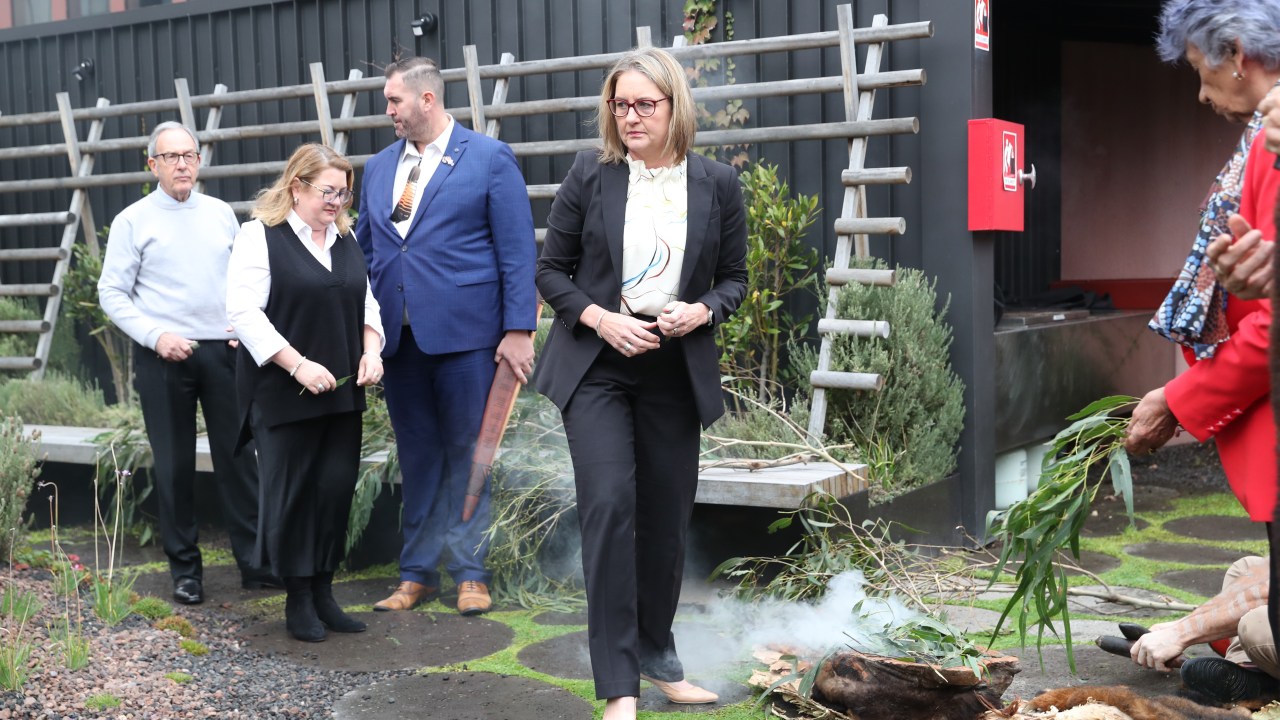Negotiations over a Treaty for Victoria remain “on track”, the Allan government has declared after a database key to the process was established.
Sky News host Peta Credlin has blasted Victoria’s Treaty and First People’s Minister Natalie Hutchins for refusing to rule out “billions in reparations”.
“The Voice referendum might have bombed disastrously last year … but left activists have never let democracy interfere with their plans to change our country,” Ms Credlin said.
“Victoria has had a so-called First People’s Assembly since 2019, tasked with negotiating a treaty between the 45,000 of Victorians who identify as Aboriginal and the Parliament representing all six million Victorians.
“Naturally, Victorian Labor, well, they’re pushing on, despite the state’s rejection of the separatist Uluru Agenda – Voice, Treaty, and Truth – that Victorians voted down by 55 per cent to 45.
“Yesterday, the Victorian government’s so-called Treaty and First People’s Minister refused to rule out anything in an appearance before a parliamentary committee.
“The Minister, Natalie Hutchins, refused to rule out giving compulsorily acquired private property to indigenous groups. She refused to rule out separate indigenous seats in the Victorian state parliament. She refused to rule out billions in reparations.”
The government this week confirmed it was expecting negotiations to start later this year after the Treaty Negotiations Database was officially established.
The database – overseen by the Treaty Authority – will “hold information on which parties are involved in Treaty negotiations, as well as the status of negotiations”.
“The opening of the Treaty Negotiations Database… means we are on track to begin Treaty negotiations this year,” Treaty and First Peoples Minister Natalie Hutchins said.
“We working to bring Victorian communities together through Treaty, having passed legislation, developed policies and taken action at every level of government to build relationships based on respect and understanding.”
The Allan government said Treaty negotiations are “on track” to commence later this year. Picture: NCA NewsWire / David Crosling
The authority will invite negotiating parties including the government to register for the database, with negotiations to start after that process has been completed.
The authority said the database will help ensure First Peoples and the government “act in accordance with the guiding principles of transparency and accountability as they work together towards Treaty by making information accessible to negotiating parties and the public”.
Victoria has been on a path to Treaty since 2016 when the government first committed to an agreement described as “the embodiment of Aboriginal self-determination”.
Three years later, the ‘Treaty Act’ passed parliament and the state established the First Peoples’ Assembly of Victoria to be its Aboriginal representative body.
The Coalition supported the legislation to establish the Treaty Authority but in January revealed it did not believe a Treaty would be the best way forward to improve outcomes for Indigenous Victorians.
Opposition Leader John Pesutto said there were concerns about the “secrecy” surrounding the process, cultural heritage laws and the traditional owner settlement act.
“I think all Victorians understand that a lot has happened since the last parliament,” Mr Pesutto, was not in the last parliament, told reporters in January.
“In particular around cultural heritage and around traditional owner settlement act outcomes. In addition to which, we’ve had a really challenging debate in the last 12 months at a national level.”
Premier Jacinta Allan swiftly slammed the opposition for performing a “U-turn” on Treaty.
Loading embed…
Former Victorian Liberal MP Tim Smith says he is pleased to see the Victorian Liberals and National Coalition have decided to “oppose this terrible treaty”.
The Former Victorian Liberal’s comments come after Victoria’s opposition dropped their support for the Indigenous treaty, having previously supported the bill to begin the treaty process back in 2022.
Mr Smith says, post the Voice campaign the Victorian Liberals and Nationals have “woken up” to the idea that Australians “don’t want to be divided by race”.
“We’re all Australians,” Mr Smith told Sky News host Peta Credlin.
“You can’t make a treaty with your own people.”
“Victoria’s pathway to Treaty with our Indigenous community has had, up until this point, important bi-partisan support,” she said.
Ms Allan last October was adamant the Voice to Parliament vote was not going to change the state’s resolve to deliver Treaty.
Across Victoria, 55 per cent of voters rejected constitutional recognition of the First Peoples through the establishment of the Aboriginal and Torres Strait Islander Voice.
“We have been for some time now on a really clear path to how we can better listen and work with Indigenous Victorians to get better outcomes,” Ms Allan said at the time.
“We will continue on that path, continue working with the First Peoples’ Assembly, continue to work through the Yoorrook process – that won’t change.”

